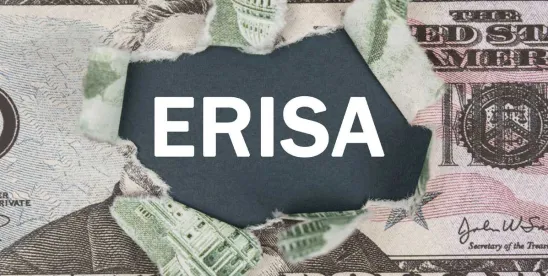The U.S. House Committee on Education and the Workforce's Subcommittee on Health, Employment, Labor, and Pensions held a hearing in April, titled ERISA’s 50th Anniversary: The Path to Higher Quality, Lower Cost Health Care. This hearing provided an opportunity for the subcommittee to use its oversight powers to examine the Employee Retirement Income Security Act of 1974 (ERISA) and discuss ideas for improving the role it plays in employer-provided benefits.
The subcommittee generally agreed that, over the past 50 years, ERISA’s most successful aspects have been:
- The preemption provision because it provides employers with the certainty to offer consistent and comprehensive benefits across state lines
- The ability to allow employers to provide innovative benefits. For example, the Subcommittee highlighted how employers were able to quickly adapt and meet the increased demand for telehealth during the pandemic
- The fiduciary obligations to administer plans in the best interest of participants and beneficiaries
However, the healthcare landscape is ever-changing, and the subcommittee generally concluded that ERISA needs updates aimed at providing employers with the tools they need to lower healthcare costs and increase quality for their employees. The two ideas reportedly with the most subcommittee support were for legislation that would 1) clarify an employer’s employer fiduciary responsibilities and 2) facilitate greater data sharing and transparency.
In addition, the subcommittee raised many other ERISA-related ideas during the hearing, including:
- Expanding long-term disability to include employees with mental health and substance abuse disorders
- Strengthening an employer’s ability to access their claims data through improved gag clause prohibitions
- Affirmatively requiring data sharing with both the plan sponsor and business associate
- Requiring service providers to disclose direct and indirect compensation
- Promoting competition through increased price transparency rules
- Increasing employer access to utilization information to allow employers to better understand their plan’s cost and quality drivers when designing their benefits
- Creating financial incentives for employer health plans to contribute to multi-payer claims databases
- Implementing the No Surprises Act’s Advanced Explanation of Benefits provision
- Prohibiting the use of all-or-nothing clauses that require insurers to include all of a health system's providers and facilities in their network
- Clarifying a plan sponsor’s duty to monitor
- Expanding ERISA to cover all self-employed individuals
- Providing a union waiver option that allows unions to create and operate private healthcare plans
- Conducting oversight over hospitals that charge facility fees for telehealth appointments
- Funding the Department of Labor’s Employee Benefits Security Agency
The subcommittee likely will continue searching for agreement on legislation that would require additional pricing and compensation data for employers and employees.




 />i
/>i

